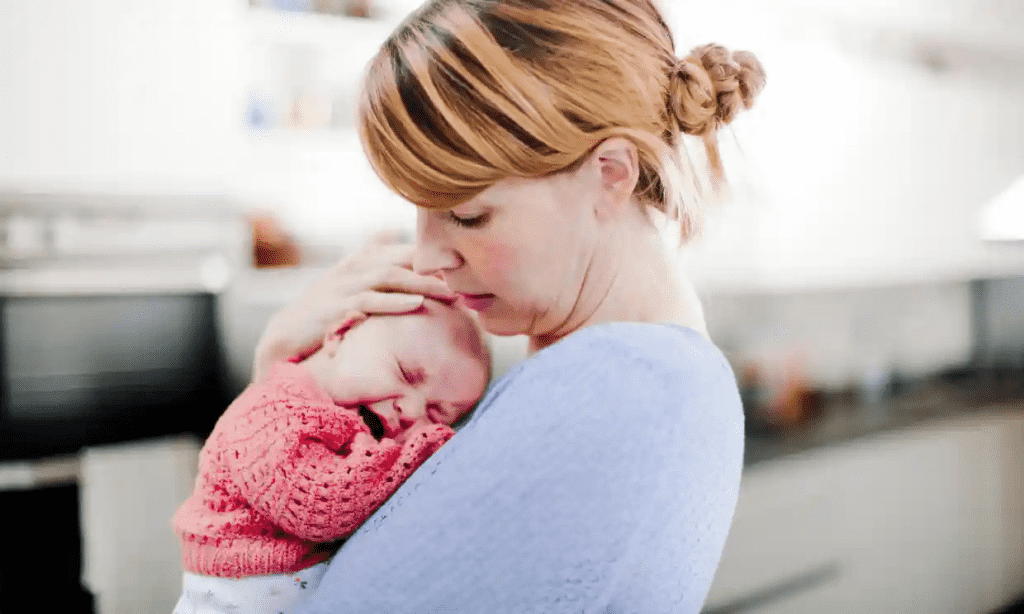The ultimate desire of every exhausted, sleep-deprived parent is to get a sobbing baby to calm down and sleep quickly.
A group of Japanese experts believes they have discovered the greatest approach to calm a squalling child in minutes. According to researchers from the RIKEN Centre for Brain Science in Saitama, Japan, holding newborns for a five-minute stroll increases sleep even during the day.
They advised parents or caregivers who want to calm a weeping baby to hold the kid tightly to their bodies and support the baby’s head while taking a five-minute walk “on a flat and unobstructed path and at a moderate speed, ideally without sudden stops or turns.”
Furthermore, holding the baby for five to eight minutes after falling asleep before placing them down in their cot may lessen the probability of the child waking up.

The study, published in the journal Current Biology, discovered that babies who were set down too quickly after falling asleep in their mother’s arms were more likely to wake up and cry again.
“During lay down, sleeping infants were alerted most consistently by the initiation of maternal detachment,” the study authors stated.

During the study, the team, led by Dr. Kumi Kuroda, examined four techniques on 21 babies aged zero to seven months. These tasks included placing newborns in cots, rocking them in strollers, carrying them on walks, and holding them while sitting.
They concluded that the ideal technique to put a baby to sleep is to use a “five-minute carrying, five to eight-minute sitting strategy.” Five of the 11 babies (45.5%) were asleep after a five-minute walk while being carried, with no crying infants remaining at the end of the task. According to the research, two more children fell asleep within one minute of sitting and holding.
“When the infant falls asleep in the caregiver’s arms, withholding the laydown until another five to eight minutes have passed may reduce the probability of awakening the infant,” the researchers said.

The study acknowledged several limitations, such as the absence of non-maternal caregivers, and recommended additional specialized trials with bigger sample groups.
It further said that the advised system does not address “long-term sleep regulation improvement” but provides “immediate soothing of infant cry and may be useful… on special occasions when usual sleep routines, nursing, or pacifiers are ineffective or unavailable.”


